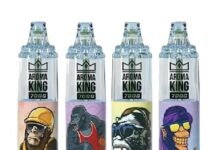Cannabidiol (CBD) has gained popularity for its potential therapeutic benefits, but concerns about its safety persist. In this comprehensive guide, we will explore the potential risks associated with CBD consumption, referencing governmental bodies and academic research. It’s essential to note that individual experiences may vary, and consulting with a healthcare professional is advisable before using CBD.
Understanding CBD
CBD is a natural compound derived from the cannabis plant. Unlike THC, it does not produce a psychoactive “high.” CBD has been studied for its potential in various health conditions, including pain management, anxiety reduction, and anti-inflammatory effects. Buy vessel weed pen from a vessel brand.
Governmental Perspective
U.S. Food and Drug Administration (FDA)
As of my last knowledge update in September 2021, the FDA had not approved CBD for general use in dietary supplements or food products, except for one prescription medication, Epidiolex, used to treat specific forms of epilepsy. The FDA expressed concerns about the safety of unregulated CBD products, including potential adverse effects and uncertainties regarding dosages.
Consumers should be cautious about using CBD products that make unproven health claims or lack clear labeling and third-party testing.
Academic Research
Academic research on CBD’s safety is ongoing, but several key points are worth considering:
Lack of Regulation
One significant risk associated with CBD is the lack of standardized regulation in the industry. This can lead to variations in product quality, inaccurate labeling, and the presence of contaminants in some CBD products.
Drug Interactions
CBD has the potential to interact with certain medications. It may inhibit the activity of enzymes in the liver that metabolize drugs, leading to higher levels of these drugs in the bloodstream. It’s crucial for individuals taking medications to consult with a healthcare provider before using CBD to avoid potential drug interactions.
Side Effects
CBD is generally well-tolerated, but some users may experience side effects, including:
- Dry mouth
- Diarrhea
- Changes in appetite and weight
- Fatigue
- Potential interactions with other medications
Various Forms of CBD Products
CBD products come in various forms, each with its own considerations:
CBD Vapes
CBD Disposable Vapes
Disposable vape pens pre-filled with CBD oil offer a convenient way to inhale CBD vapor. Users should be cautious about the quality and safety of vape products.
CBD Vape Oil
CBD vape oil is a liquid form of CBD designed for use in vaporizers. Quality and purity of the oil are essential for safety.
CBD Vape Pens
Reusable vape pens are designed for use with CBD vape oil. Users should choose reputable brands and regularly clean their devices to prevent potential health risks.
CBD Vape Cartridges
Vape cartridges are pre-filled containers of CBD vape oil. Choosing cartridges from trusted sources is crucial to avoid contamination.
CBD Oil
Full Spectrum CBD Oil
Full-spectrum CBD oil contains all the naturally occurring compounds in the cannabis plant, including trace amounts of THC. Users should be aware of the THC content and potential for psychoactive effects.
Broad Spectrum CBD Oil
Broad-spectrum CBD oil contains multiple cannabinoids and terpenes but is typically THC-free, reducing the risk of psychoactive effects.
Hemp OilHemp oil, extracted from hemp seeds, lacks significant CBD content and is generally considered safe for dietary and skincare use.
CBD Edibles
CBD Gummies
CBD gummies are a convenient edible form of CBD. Users should ensure the accuracy of dosage and product quality.
CBD Capsules
CBD capsules offer precise dosing in a pill form, but the quality of the product is critical.
CBD Topicals
CBD topicals, like creams and balms, are applied to the skin for localized relief and are considered safe for external use.
HHC Gummies
HHC Gummies are a novel and evolving product in the world of cannabinoids. HHC, or Hydroxyhexahydrocannabinol, is a compound derived from the cannabis plant that exhibits potential psychoactive and therapeutic properties. These gummies are infused with HHC, providing users with a convenient and tasty way to explore its effects.
Similar to traditional CBD or THC gummies, HHC Gummies come in various flavors and strengths, allowing consumers to customize their experience. However, it’s important to note that the legality and regulation of HHC products can vary by location, so users should be aware of local laws before trying them.
Conclusion
The question of whether CBD is risky depends on various factors, including the quality and source of the product, individual health conditions, and potential interactions with medications. To minimize risks associated with CBD use, consumers should:
Choose reputable brands with transparent labeling.
Consult with a healthcare provider before using CBD, especially if taking medications.
Be aware of potential side effects and start with a low dosage.
Follow product-specific guidance for safe consumption or application.
It’s essential to stay informed about evolving regulations and research related to CBD, as the understanding of its safety profile may change over time.









































